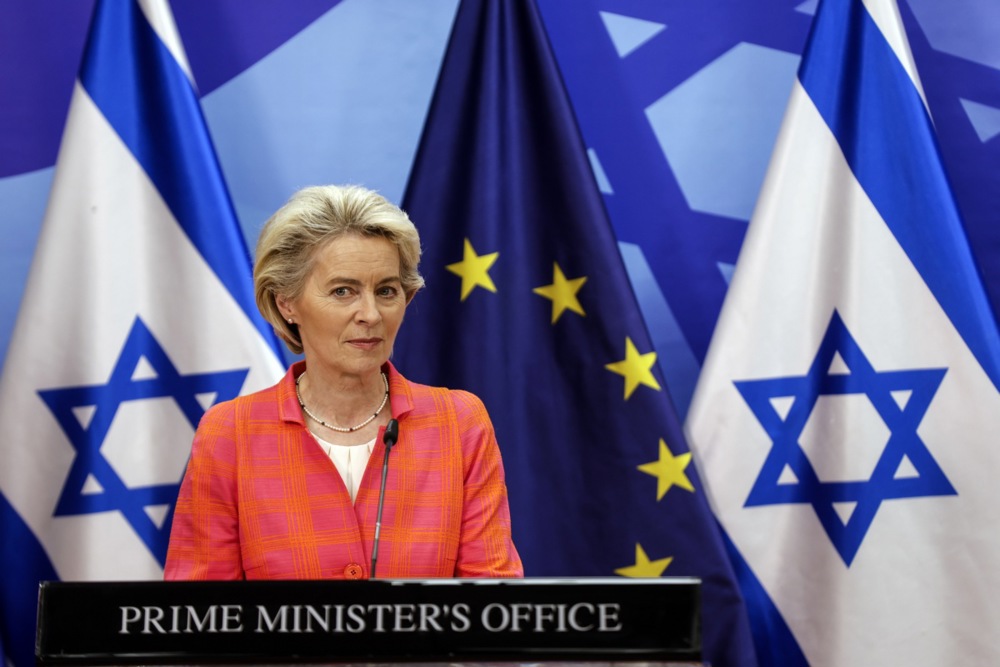The European Union (EU) prides itself on promoting democracy, human rights, and adherence to international law. However, its longstanding partnership with Israel reveals stark contradictions between its stated principles and its actions. Evidence highlights the EU’s failure to hold Israel accountable for violations of international agreements and human rights abuses.
Double Standards in Action
The Euro-Mediterranean Partnership, established by the 1995 Barcelona Declaration, obliges signatories to adhere to international norms, including respect for territorial integrity and compliance with the United Nations Charter. Despite these obligations, Israel became a partner in the agreement while occupying territories in Lebanon, Syria, and Palestine—a clear violation of the Declaration’s principles. The EU’s willingness to overlook these violations starkly contrasts with its stance toward Russia, where military occupation in Georgia led to postponed negotiations. This inconsistency raises questions about the EU’s commitment to equitable standards in its foreign policy.
The Euro-Med Agreement and Human Rights Clause
The Euro-Med Agreement, granting Israel preferential access to EU markets, explicitly requires respect for human rights and democratic principles. Israel’s ongoing violations, such as its economic blockade of Gaza—described by the EU and the United Nations as “collective punishment”—flagrantly breach this clause. Despite clear evidence of violations, including discriminatory laws against Arab citizens and human rights abuses in the Occupied Territories, the EU has refused to suspend the agreement, further enabling these actions.
Ignoring the Evidence
In 2004, the EU upgraded its relationship with Israel by including it in the European Neighbourhood Policy (ENP). This partnership aimed to promote shared values such as democracy and human rights. However, multiple EU Commission reports have documented Israel’s discriminatory policies against its Arab minority and its actions in the Occupied Territories, including settlement expansion, house demolitions, and restrictions on movement. These reports underscore the lack of progress in addressing these issues, yet the EU continues to deepen its ties with Israel, as evidenced by the 2008 decision to “upgrade” their partnership.
Failure to Enforce the Agreement
The Agreement on Movement and Access (AMA), brokered by the Middle East Quartet in 2005, promised Palestinians freedom of movement through the Rafah crossing and other access points. Despite these commitments, Israel’s de facto veto over the opening of crossings has left Palestinians in Gaza isolated. The EU’s inability to enforce these promises, coupled with its role in facilitating the agreement, further undermines its credibility as an honest broker in the Israeli-Palestinian conflict.
The Broader Implications
The EU’s consistent failure to hold Israel accountable undermines its moral authority and credibility in international relations. By turning a blind eye to violations of agreements such as the Barcelona Declaration, the Euro-Med Agreement, and the AMA, the EU not only perpetuates injustice but also risks losing the trust of other global partners.
A Call for Accountability
Compelling evidence highlights that the EU’s approach to Israel is characterized by selective enforcement of international law and double standards. To align its actions with its principles, the EU must insist on Israel’s compliance with its obligations. This includes ceasing settlement expansion, lifting the blockade on Gaza, and adhering to United Nations resolutions. If Israel continues to disregard these commitments, the EU should consider suspending its partnership agreements until meaningful progress is achieved. Only by prioritizing justice and accountability can the EU restore its integrity and contribute to a sustainable resolution of the Israeli-Palestinian conflict.


